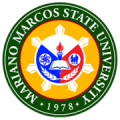Researches shine in nat’l agri symposium
 THREE research papers from MMSU received awards in the 25th National Research Symposium (NRS) conducted by the Department of Agriculture-Bureau of Agricultural Research (DA-BAR) in Diliman, Quezon City, Oct. 16-17.
THREE research papers from MMSU received awards in the 25th National Research Symposium (NRS) conducted by the Department of Agriculture-Bureau of Agricultural Research (DA-BAR) in Diliman, Quezon City, Oct. 16-17.
The research on “Predicting rice yield from multi-temporal satellite data using artificial neural network” by Dr. Nathaniel R. Alibuyog and his co-workers bagged the third place in the technology for generation category which carried a prize of P50,000 and a plaque of recognition.
On the other hand, the papers on the “Evaluation of light bulbs and the use of foliar fertilizer during off-season production of dragon fruit” by Mr. Leonardo T. Pascua of the Cotton Development Administration and Prof. Maura Luisa S. Gabriel of CAFSD; and “Pesticidal activity and product formulation of different plant extracts for organic vegetable production in the Ilocos” by Ms. Leticia A. Lutap and company settled as qualifiers and each received P10,000 and certificate of recognition.
Predicting rice yield
Alibuyog’s research involved the monitoring of rice growth and forecasting its yield before harvest season using remote sensing images. The study explored the potentials of the artificial neural network (ANN) model using multi-temporal satellite data. It used 16-day composite TERRA MODIS satellite images (which the researcher downloaded from the Internet) from November 2010 to April 2011 to predict rice yield in Ilocos Norte. Two ANN rice yield prediction models, namely RiceMod3 and RiceMod5, were developed.
Results showed that RiceMod3 and RiceMod5 were quite efficient in capturing the complex relationship between rice yield and crop spectral signature with R2 values of 0.542 and 0.732, respectively.
The ability of RiceMod3 to reasonably forecast the expected rice yield prior to the harvesting date may be useful in providing farm advisories. The RiceMod5, on the other hand, may be employed to provide timely prediction of crop yield over large areas and used as an alternate method for crop yield survey.
Off-season production of dragon fruit
On the other hand, Pascua’s research involved the use of 6-Watt light emitting diode (LED) bulbs in inducing dragon cactus to flower during off season months.
Results of the study showed that dragon cactus plants can be induced to flower if they are provided with supplemental lighting using LED and compact fluorescent bulbs between 10 p.m. to 2 a.m.
After six months, plants lighted with 6-Watt LED bulbs gave P86,726 net income, while those lighted with 26-Watt CFL and 100-Watt incandescent bulbs gave P82,421 and P26,647 net income, respectively.
Plant extracts for organic vegetable production
Meanwhile, Lutap’s research showed an easy way to make pesticides and fungicides from plant extracts which are effective in controlling common insect pests and diseases attacking high value commercial crops.
Extracts derived from snake weed, yellow ginger, betle, banana bush, Mexican poppy, lantana, sticky spider flower, aloe vera, garlic wastes, and tibak leaves contain substances effective in controlling tomato fruit worms, thrips, mites, and beetle pests; and diseases like tomato blight, purple blotch, and cercospora leaf spot on garlic.
These pests and diseases, according to the researchers, are known to reduce the yields of farmers by as much as 40-90 percent. Tests showed that compounds present in these extracts have ovicides, insecticides, and anti-feedants properties. Ovicides kill eggs of insect pests, while anti-feedants destroy the pest’s appetite on the host plant.
When applied as biological pesticides and fungicides, the plant extracts have markedly reduced the pest’s growth such as the number of larval and pupal days and the premature mortality of treated larvae. The formulated products are as effective as the commercial chemical pesticides and fungicides commonly used by farmers.
Gallery
Dear Valued Client,
We will be introducing our newly upgraded website on October 31, 2024 – offering faster access, improved navigation, and enriched content for students, faculty, partners, and stakeholders. Experience how we cultivate minds and transform futures at MMSU.

 CAFSD
CAFSD CASAT
CASAT CAS
CAS CBEA
CBEA CCIS
CCIS COE
COE CHS
CHS CIT
CIT CTE
CTE COM
COM CVM
CVM Graduate School
Graduate School




